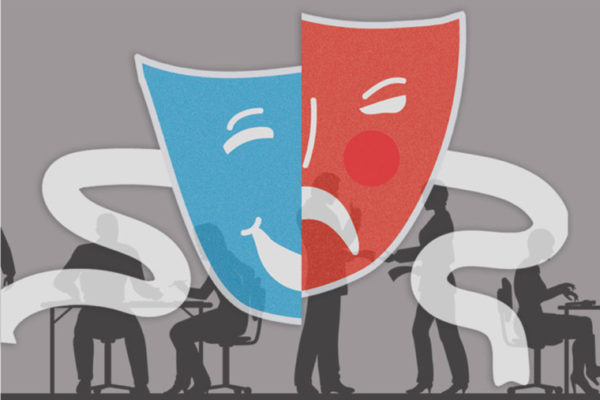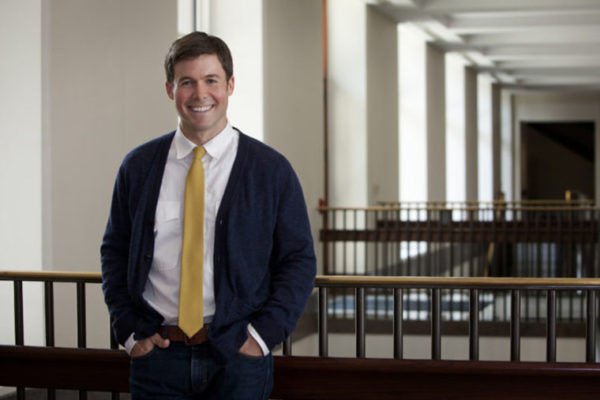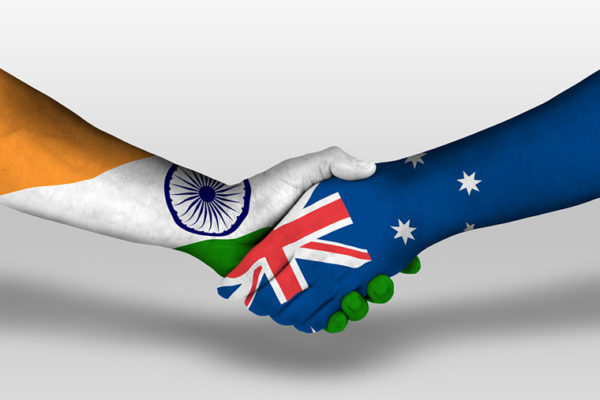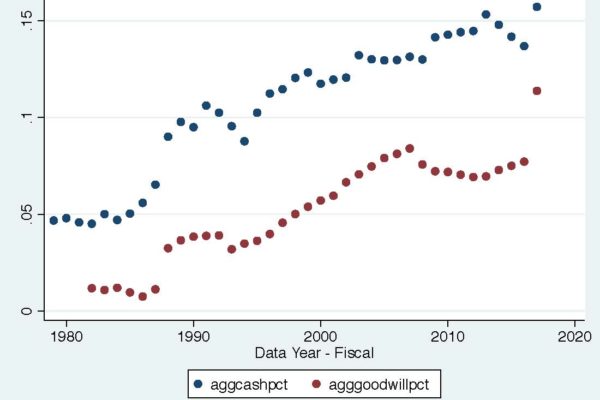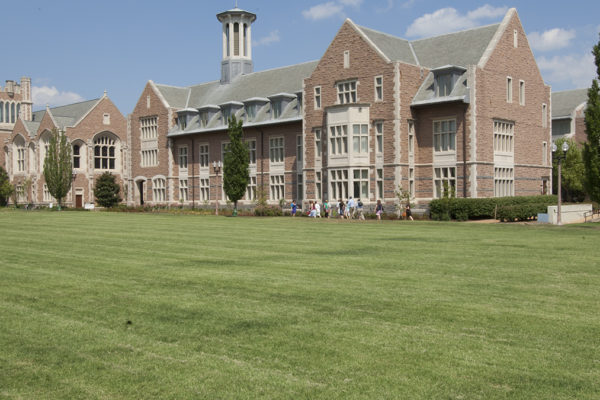Funny side, hard edge: Your boss’ behavior matters
You might expect that a boss who cracks jokes is healthy for the workplace, while a boss who blows his stack isn’t. As it turns out, according to Olin Business School research, the opposite might be true — depending on the circumstances.
Why customer-facing companies have happier workers
It’s possible the Keebler Elves aren’t as happy at work as they seem. Or SpongeBob SquarePants’ dour fast-food colleague Squidward might be a little cheerier than he lets on. New research from Olin Business School shows that people working in customer-facing companies, such as retailers (or cartoon burger joints), tend to be happier at work, while workers for companies further removed — manufacturing, for example (or treehouse cookie factories) — tend to be less happy.
The universal language of emotion
An international research team, led by Washington University in St. Louis, studied vocal expressions uttered by people in the United States, Australia, India, Kenya and Singapore, and found that people were better at judging emotions from fellow countrymen.
CEOs didn’t ask for this, but they’ll take it to the bank, shareholders
It’s curious that we heard very little from the C-Suite in the deliberations leading up to the Dec. 22 signing of the Tax Cuts and Jobs Act. What makes this curious is that the goal of the act was to increase GDP growth above 3 percent by stimulating corporate investments to increase productivity, but no one seemed to be asking CEOs whether the tax cut would have that effect.
Plan will reduce the allure of home ownership
Overall, aspects of the tax-reform package will reduce the attractiveness of home ownership and mortgages, and it may even adversely affect home prices going forward.
Olin Award winners impact business
In a concentrated, continuing effort to link Washington University in St. Louis academic research to everyday business practice, the 10th annual Olin Award recognizes an Olin Business School faculty member who joined two University of Pennsylvania professors in crafting a computer model to guide managers who need to forecast behaviors of newly acquired customers.
Study: How new Airbnb nondiscrimination policy may be worse
New research co-authored by a faculty member at Washington University in St. Louis’s Olin Business School shows that more information about guests, as opposed to less, is important to eliminate potential bias in sharing economy platforms such as Airbnb.
Get up! New research shows standing meetings improve creativity and teamwork
Chairs provide great support during long meetings, but they may also be holding us back. Standing during meetings boosts the excitement around creative group processes and reduces people’s tendencies to defend their turf, according to a new
Washington University in St. Louis study that used wearable sensors to measure participants’ activity levels.
The dangers of surveillance – it’s bad, but why?
Surveillance is everywhere, from street corner cameras to the subject of books
and movies. “We talk a lot about why surveillance is bad, but we don’t
really know why,” says Neil Richards, JD, privacy law expert and
professor of law at Washington University in St. Louis. “We only have a
vague intuition about it, which is why courts don’t protect it. We know
we don’t like it, and that it has something to do with privacy, but
beyond that, the details can be fuzzy.” Richards’ new article on the topic, “The Danger of Surveillance,” will be published in the next issue of the Harvard Law Review.
